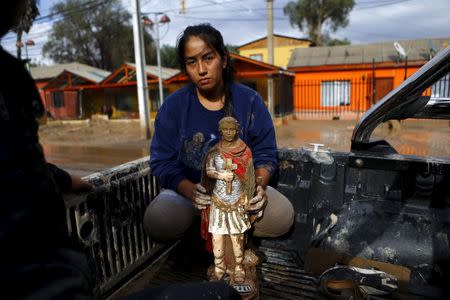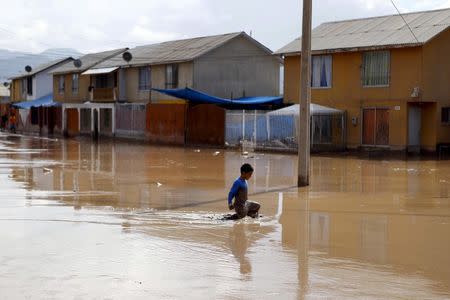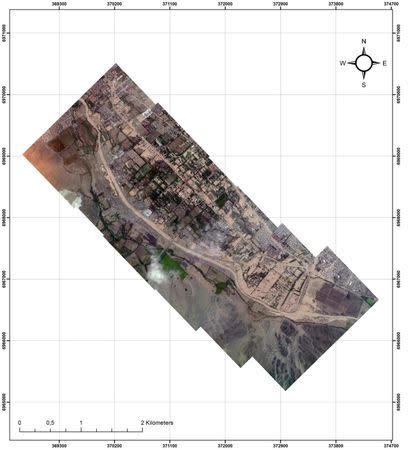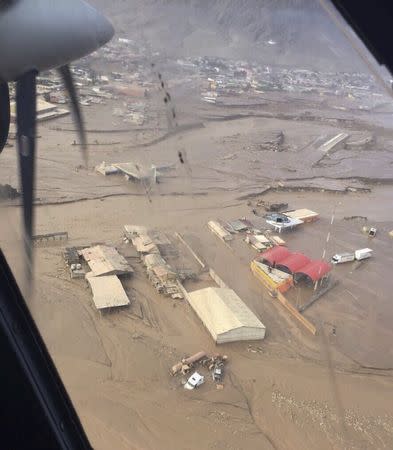Seven die in Chile floods, military rescues stranded residents
SANTIAGO (Reuters) - The death toll in Chile rose to seven after rains battered the north and caused flooding, the government said on Thursday, while 19 others were unaccounted for as the military rushed to rescue stranded villagers. The downpours in the usually arid region have been the heaviest in about 80 years, although the worst of the bad weather appeared to be over, meteorologists said. Rivers have burst their banks, flooding towns, making roads impassable and forcing miners in Chile, the world's top copper exporter, to suspend operations. Chile, a sliver of land between the Pacific Ocean and the Andes Mountains in one of the world's most seismic zones, is used to dealing with natural disasters. Military helicopters flew in supplies and evacuated residents from three villages in the Atacama region that were entirely cut off and only reachable by air, Mahmud Aleuy, the deputy interior minister, said on Thursday. "We're transporting medicine and will start a process of mass vaccinations" in order to avoid the spread of diseases, Aleuy added. The city of Copiapo, some 800 km (497 miles) north of Santiago and home to 160,000 people is also partly cut off, he said, adding that the airports of both Copiapo and Antofagasta further to the north have been closed to commercial air traffic. The unusual weather phenomenon was caused by a cold front hitting the Andes. Spurred by high temperatures, it produced strong rains at the high altitudes instead of snow, which swept down to valleys and towns in the foothills. The scenes contrasted with those of parched fields further south, which were desperate for rain after a hot, dry summer that hurt farming and mining production. But the rains fell in a different part of the country and did not signal the end of an eight-year drought, said climatologist Claudia Villarroel. "These rains serve to accumulate water, but the superficial run-off is very high. What is best is a little, constant rain," she said. (Reporting by Antonio de la Jara and Rosalba O'Brien; Additional reporting by Anthony Esposito; Editing by Jeffrey Benkoe and Diane Craft)









